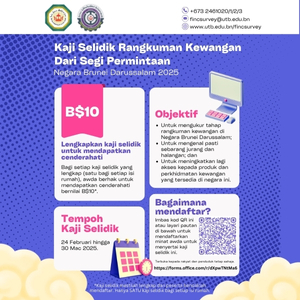THE WASHINGTON POST – For a generation of Internet users looking for answers, Google was the first stop. Google became so associated with search that its name became synonymous with the act of seeking information online. But there are signs that’s changing.
“How I feel about the brand has changed quite profoundly,” said Clint Choi, a 26-year-old marketer in London. “When I was just starting to access the Internet, Google was an authority, but… the parent company that owns Google misplaced the consumer’s trust. We don’t see Google as the central authority on search anymore.”
To be sure, Google is still a dominant force in search. The platform still holds 90 per cent of the search engine market, according to SimilarWeb, a software and data company. But increasingly, users, especially Gen Z ones, are complaining, and the signs of decline are many.
In 2021, TikTok briefly dethroned Google as the world’s most popular domain, according to Cloudflare, a web security firm. About 40 per cent of Gen Z – those born between 1997 and 2012 – prefers to discover information on platforms other than Google, according to data presented last year by senior vice president at Google Prabhakar Raghavan.
Google’s share of revenue from search advertising in the United States (US) is expected to fall to 54 per cent this year, down from 67 per cent in 2016, according to eMarketer, a research firm.
Users bemoan the product’s declining utility in viral tweets and TikToks and trade information on more reliable methods of hunting down information. Google itself is aware of this issue and recently announced a slew of updates to the service, including new AI-generated search results at its annual conference.


“Google successfully helps people with the billions of searches they do each day, but we are always working to make it better,” said Danny Sullivan, Google’s public liaison for search.
“We’ve continued to apply technologies like AI to enable new ways for people to search and make sense of what’s out there. Where there’s room to improve, we prioritise it, exemplified by our work to bring more helpful content from experts and everyday people into search.
Our rigorous evaluation process ensures that these changes really make search better for people, and we continue to innovate and introduce new capabilities.”
But the changes may not address the fundamental issues behind Google’s decline. Google didn’t get to the position it’s in overnight. As the company ramped up its advertising options, useful search results were demoted down the page in favor of ads, experts say. The company has also been plagued by SEO spam, which crowds out relevant search results, often AI-generated or full of poor quality information, that are designed to rank high on Google’s algorithm.
The combination of issues “weakened Google’s own ranking system to the point where a link’s presence among the top results for a Google search is correlated with scamminess, not relevance,” Cory Doctorow recently wrote in a blog post. “This is a vicious cycle: the worse Google’s search results are, the more they depend on being the default search.”
Google users who spoke to The Post compared the company’s search product to the experience of hunting through a bargain bin for a useful item or searching for a needle in a haystack. “Google’s content is very much what google wants you to find rather than the right search result,” media relations firm EZPR CEO Ed Zitron said. “Google categorically failed as a steward of the web, and over the course of about 10 or 15 years, effectively just turned on customers entirely. It’s almost as if you have to trick Google into giving you what you want.”
Users developed a variety of coping mechanisms to deal with the shortcomings of the product. Will Linker, an IT associate at a non-profit in Baltimore, said that he noticed a marked shift around five years ago.
“You have to do more digging than you had to previously,” he said. “It used to work, it used to actually help you out right away.” Now, he makes sure to use certain keywords in his searches and usually scrolls past the top results, which he says are often spam. He noticed that the question and answer site Quora often ranks high, but rarely has the information he’s seeking.
Others search for content on other platforms. They search Reddit for whatever they’re looking for, or append the word Reddit to the end of their Google search, knowing that a post on one of the platforms’ many forums may have a more useful answer than what Google can dig up on its own.
Wikipedia, whose homepage defaults to a search bar, is also an increasingly popular search tool. Verge reporter James Vincent wrote about his preference for the Wikipedia app over Google last year declaring that, “Wikipedia is actually one of the true wonders of the Internet: an honest-to-goodness gift to humanity that, despite its numerous failings, provides exponentially more utility than harm in this shabby, fallible world of ours.”
Content creator and Depths of Wikipedia founder Annie Rauwerda said Wikipedia fulfills a lot of the function that Google initially promised. “Wikipedia is constantly updated, there’s standards for the sources, so it’s very rare that you find low quality SEO farm websites cited,” she said. Googling, she added, “should be so simple, but it was absolutely annihilated by SEO and random AI written stuff.”
Google isn’t just facing an erosion of trust in its core product due to SEO spam; it’s also struggling to find its place in an increasingly fragmented online environment. Fifteen years ago, search was the primary access point to the broader web. Now, not so much. More users are discovering content on social platforms like TikTok, YouTube, Instagram and more. “Internet search as a tool of mass digital exploration feels as if it is in the rearview,” film curator Maya Cade tweeted in March.
Los Angeles-based content creator Sid Raskind agreed. When he looks for information, he’s much more likely to seek content out on TikTok. “It’s easier and more digestible to watch something happen on TikTok quickly, than to sift through a lot of info and hopefully find the answer,” he said.
“People are more interested in watching a video than reading an article,” added Gigi Robinson, a motivational public speaker who said she had to search extensively for information while completing her masters of science at University of Southern California in 2020.
Middle and high school history teacher in Wisconsin Alex Stevens said a growing number of his students can barely search something effectively on Google anymore. Instead, they seek out information in video form, often on YouTube or TikTok. “They expect Google to operate like Chat GPT,” he said. “Students don’t differentiate well between other students’ work and trusted sources or useful sources. It’s like the students want a singular answer, they’re not willing to parse through information or engage in synthesis.”
To navigate this shift, Google has begun integrating more content from social media platforms like TikTok, directly into search results. Recently, the company announced that it would soon roll out several AI-related updates to its search functionality. Soon, when a user Googles something, they may receive a clearly written, natural language answer written by AI.
But in a world where users increasingly value authenticity, those updates may not sway enough users. “What people expect now is the type of authenticity you’d get from a TikTok like experience,” said Sarah Latoza, a technical program manager who’s worked in online search for 15 years.
Those who abandoned Googling told The Post they have no plans to return. Ed Button, the housing director of a community action group fighting poverty in Missouri, said that he’s “stepped away” from Google and now uses Bing. “I tell people that and they look at me like I’m speaking Greek,” he said. But he finds Bing more useful and he likes that he can redeem the points he accrues from using the service for gift cards. “’I’m searching stuff all the time, so why not get something out of it?” he said.
Elan Ullendorff, a web designer and educator in Pittsburgh who teaches a class at the University of Pennsylvania titled ‘Escape the Algorithm’, has even gone so far as to curate a public list of his favourite boutique search engines. “The homemade search engines don’t have grand profit ambitions, or they are small enough that people don’t have monetary incentives to try and game their algorithms,” he said. “That’s where you can find the really good stuff.”
He sees the next era of information sharing as one dominated by humans. “Human curation is always going to be the best way to get recommendations, we all want to connect and express and listen to other people,” he said. “Unless we’re looking for super cold hard facts, the way people say things is as much a part of communication as the things people are saying.”
Ironically, the shift toward AI-generated results could only make Google feel even more automated and less human, he said. Ullendorff believes we’re at an inflection point with generative AI that could make SEO spam look quaint in comparison.
“As bad as Google is, it will get worse (with the move toward AI),” he said. “It will get better at extracting commodifiable information, but letting you access humanity? I think it’s only going to get worse. I hope I’m wrong.” – Taylor Lorenz




